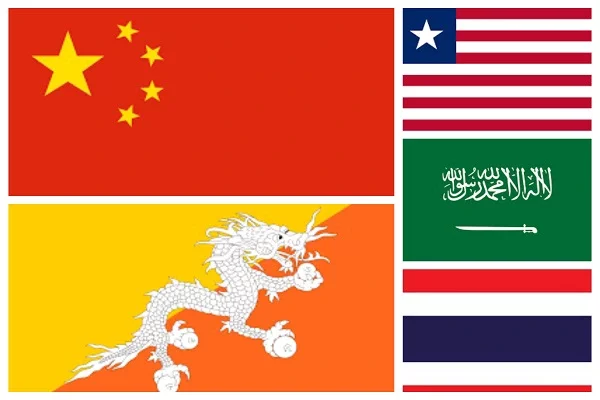
From history, European powers travelled the globe in search of territories to conquer, exploit, and govern. Although some countries came under its rule, some were not colonised by the Europeans maintaining their sovereignty and cultural integrity against all odds.
These countries managed to retain their independence through various means, including diplomacy, military resistance, and strategic alliances, despite the widespread colonization efforts of European powers during the 19th and early 20th centuries.
Here are some countries that were not colonized by Europeans:
Japan is one of the few countries that managed to resist European colonisation maintaining its independence throughout its history, despite attempts by European powers to establish trade relations and exert influence.
The country was aware of the threat of Western invasion and in response initiated the political revolution called Meiji Restoration of 1868 that brought about the final demise of the military government Tokugawa shogunate who was ruling in Japan since 1603 returning control of the to the direct imperial rule under Prince Mutsuhito.
Earlier known as the Kingdom of Siam - which was located between Indochina (now Vietnam, Laos and Cambodia) and Burma (now called Myanmar) - Thailand avoided colonisation through a combination of diplomatic skill and strategic concessions. It maintained its independence as a buffer state between British-controlled Burma and French-controlled Indochina.
King Chulalongkorn, who is considered one of the greatest kings of Thailand, worked to adopt several European customs and became interested in European technology. He also made diplomatic efforts in Britain, thereby minimizing the possibility of colonization by Europe and France.
Established in the 19th century by freed African-American slaves, Liberia was never colonised by Europeans, although it faced significant influence from the United States.
Saudi Arabia, which has been ruled primarily by tribal leaders from across the region has remained independent and uncolonised, largely due to its geographic isolation and the strength of its ruling family, the House of Saud.
In the 16th century, the Ottoman Empire that controlled much of Southeastern Europe, Western Asia, and Northern Africa between the 14th and early 20th centuries gained control of the majority of Saudi Arabia and remained in power until 1918.
During this reign, the Saudi royal family began to fight for control of the country. This political movement coincided with World War I when Britain was fighting the Ottoman Empire. To weaken the Empire, Britain supported a pan-Arab revolt. At the end of the war, the Empire lost control of Saudi Arabia and since then it has become one of the powerful regions in the world.
Bhutan maintained its independence by carefully navigating its relations with neighboring powers, particularly Britain and later India, throughout the colonial period.
The small country with a population of around 7.8 lakh located east of the Himalayan mountain range makes it difficult to invade. The British, however attacked the country from 1772 to 1774 and defeated them in North Bengal and gained control of some insignificant areas of the Kingdom of Bhutan.
However, despite being defeated by the British army, Bhutan still managed to negotiate power. After it did not receive any help from Tibet, the Druk Desi, a regent of Bhutan, also known as Deb Raja in Western sources signed a Treaty of Peace with the British East India Company on April 25, 1774.
In return for withdrawing British troops, the Kingdom of Bhutan agreed to pay them 5 horses and give them permission to harvest timber in Bhutan. Despite this agreement, the two countries were in constant border conflict until 1947, when India gained independence and British forces withdrew from the area.
Nepal maintained its sovereignty through a combination of strategic alliances and military prowess, despite being between British India and Qing China during the colonial era.
From 1814 to 1816, the Nepalese military forces fought in the Anglo-Nepalese War that was also known as the Gorkha War between 1814 to 1816.
Reluctant to face the terrain after the been impeded by the mountains, British forces left the rest of Nepal as an independent state, creating a border area for British India.
China is sometimes called a partially dominated nation, especially in relation to certain Chinese territories under the control of foreign powers. Although, no country has ever controlled the entire territory, during the European powers' attempt to control the world, the Chinese Empire was not easy to conquer as it had a powerful army and government like the Ottoman Empire.
Its large size became an advantage, making it an elusive target for colonization. Britain and France, instead of gaining colonial rule, were able to gain some power over China through their imports and exports.
Their status as favoured nations grew during the First and Second Opium Wars from 1839 to 1842 and from 1856 to 1860.
Seeing the benefit of being a favoured nation, the United States, Russia, and Italy wanted the same status. Rather than being colonized, China's coastal areas were divided between Western powers, causing the Qing dynasty to lose some but not all of its control.

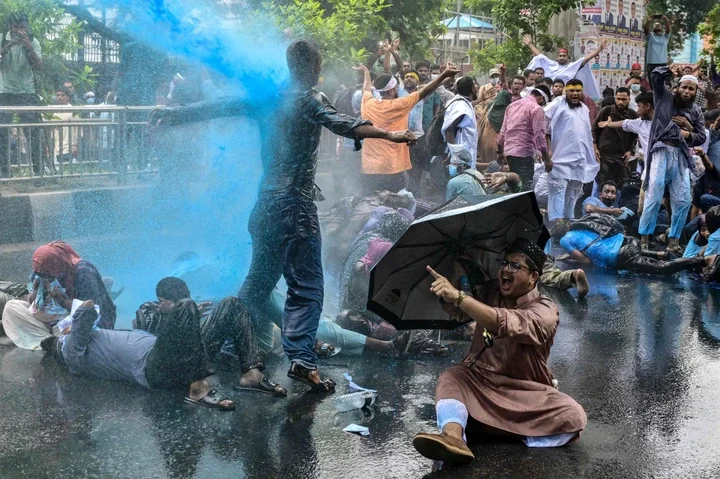


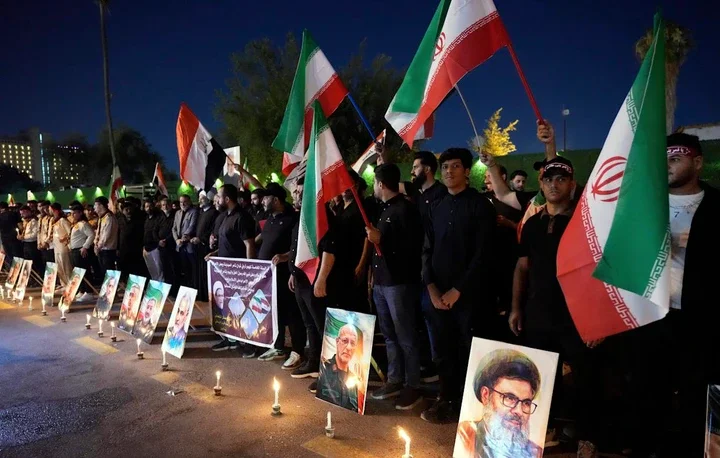
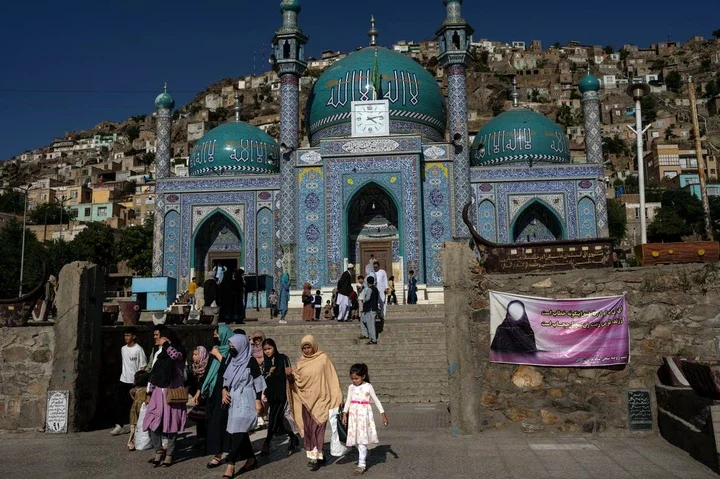
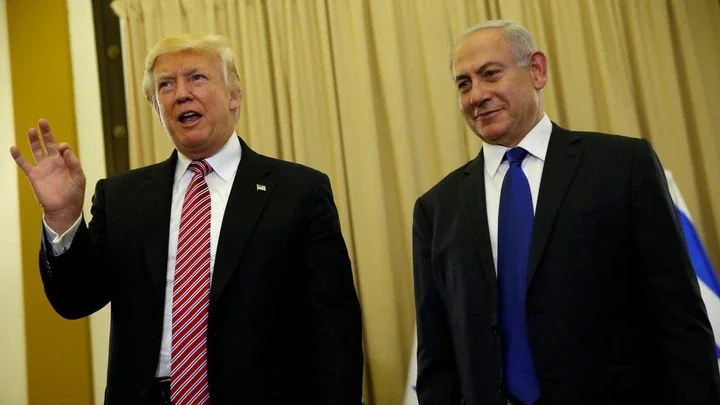

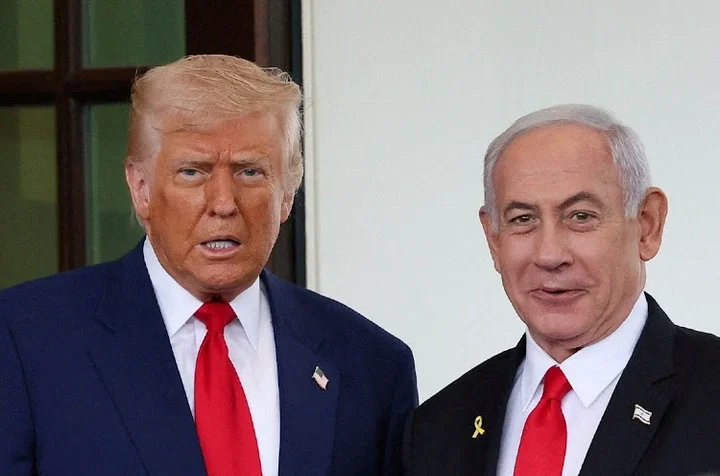








Comments